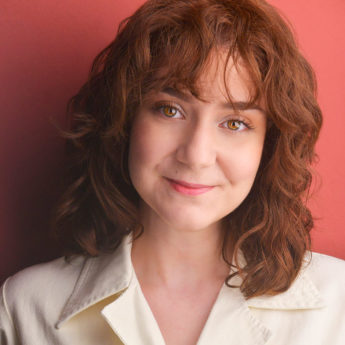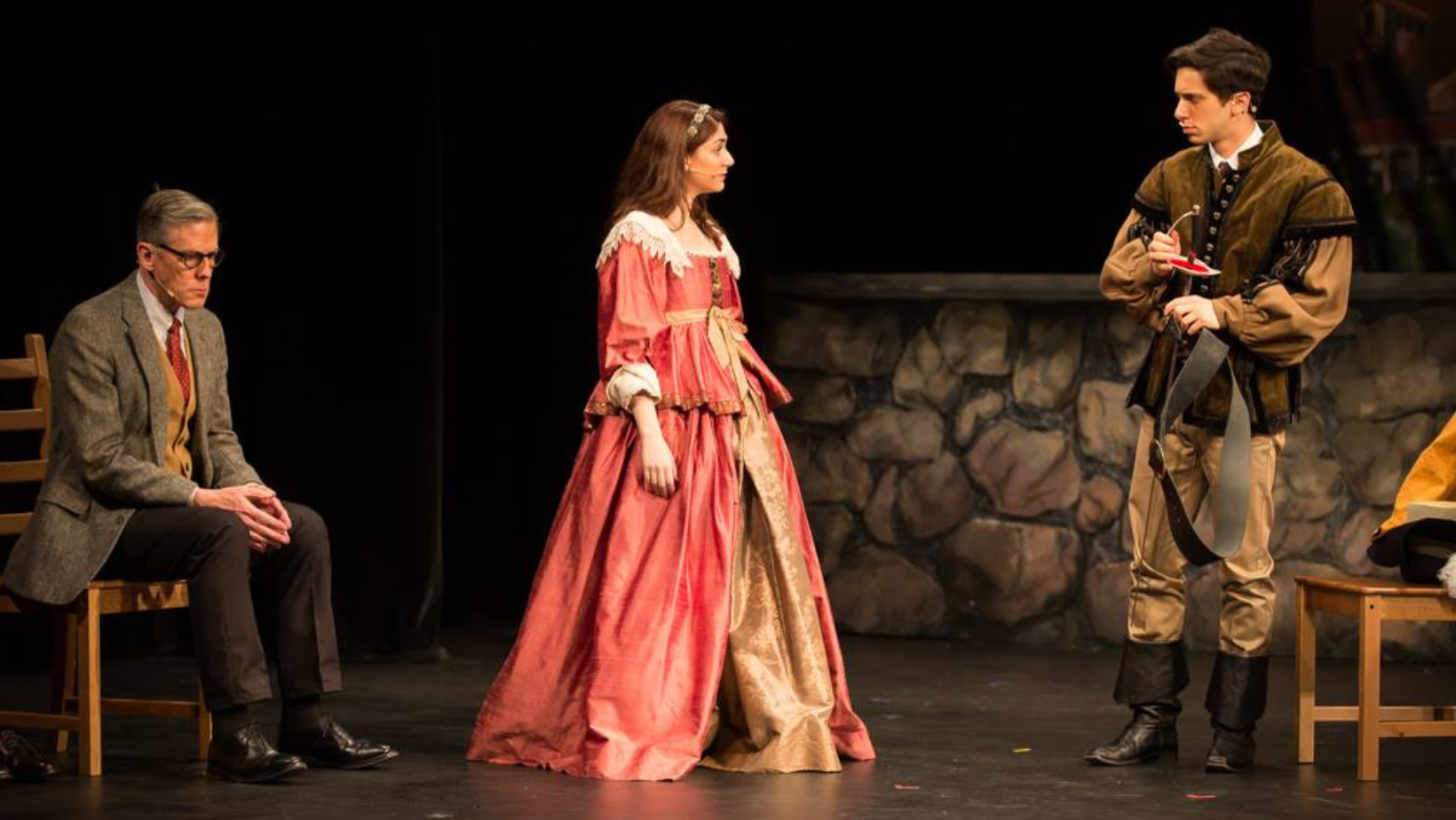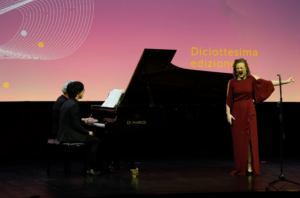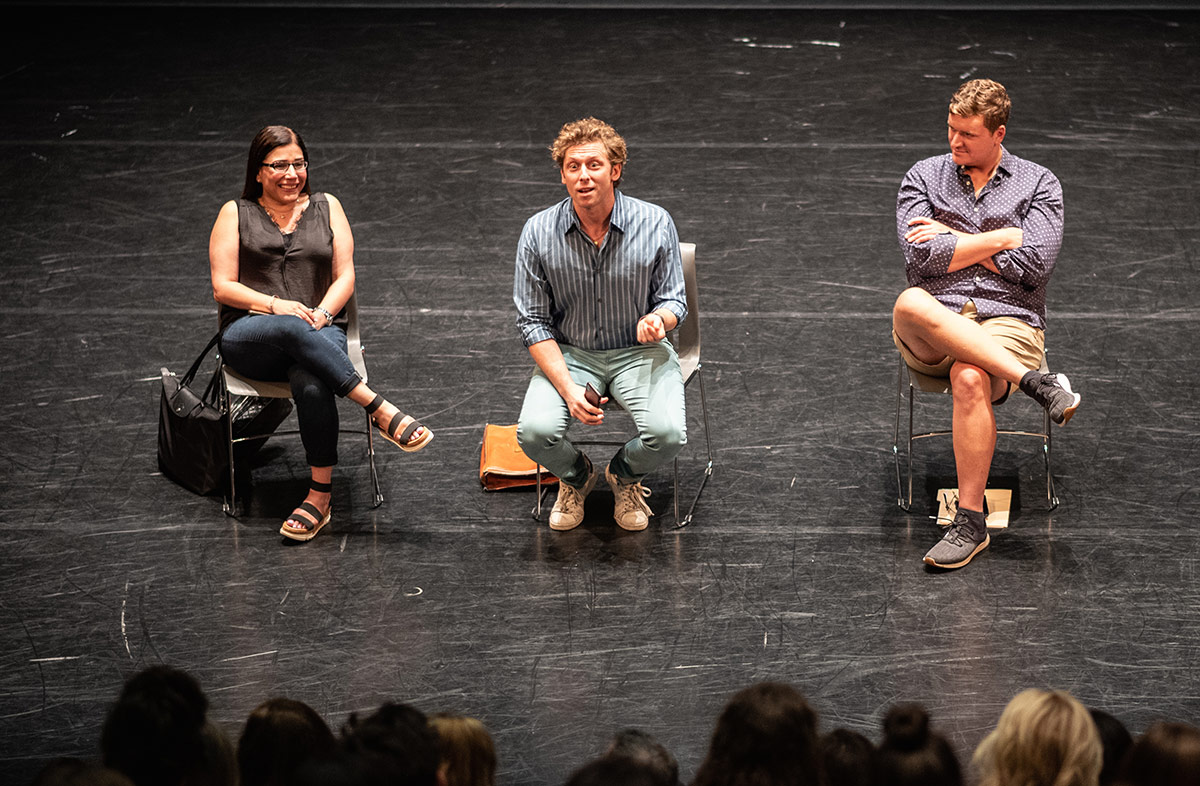A truly great audition piece introduces the audience not just to your technical skill as a performer, but reveals something about you as a person; your perspective, your unique reactions, your innate humor or avenues of thought. This is often what directors mean when you hear that loaded feedback – “just be yourself!” It isn’t that they mean they want you to turn Cordelia (from King Lear) into yourself. They mean: use this material to grant me insight into the utterly unique you at the core.
A daunting task, for sure! But one of the easiest ways to make material feel uniquely yours, and robust with the idiosyncrasies that make you a truly distinct and important performer is to stop inventing.
By “inventing”, I mean coming up with scenarios, scene partners, and emotional reactions we have not experienced before in our lives, and using those as the lived-in base reality for our songs and monologues.
This was a topic that arose often when I was regularly coaching improv. I could see people trying to come up with the most original, bombastic response to any initiation, even something as simple as “hey, I brought you a sandwich.”
“Don’t you know my beloved grandmother DIED because of a sandwich!?” the other improviser would leap up, shouting. The scene usually fizzled out shortly after, the initiator unsure of how to respond to the notion of a murderous sandwich, and the other person in the scene unable to justify what happened with the sandwich and poor grandma. To me, it was a telltale sign of too much “inventing.”
I’d then ask,
“I know this sounds ridiculously simple but I really want you to tell me: what do you actually feel about sandwiches?”
Whether the response is “I honestly love them! I think it’s the perfect lunch item” or “I’ve never met a sandwich I really liked… they always fall apart!” – you already have a much truer, fuller response to the sandwich offer than the wacko grandma story. Your true feelings will steer the ship. Easily, “thanks… I love sandwiches!” can grow into, “and thanks for remembering that, you’re the best coworker I have ever had!” as the scene progresses. All because of a silly sandwich.
To bring this back to the topic of coaching a song, I always find that working from a place of truth over invention benefits a student.
Let’s use one of my favorite classic ballads as an example. Here are some lyrics from “I Get Along Without You Very Well.” [1939; Hoagy Carmichael]
I’ve forgotten you just like I should
Of course, I have
Except to hear your name
Or someone’s laugh that is the same
But I’ve forgotten you just like I should
I get along without you very well
Of course, I do
Except perhaps in spring
But I should never think of spring
For that would surely break my heart in two
Frequently, if I ask a student what I think this song is about, they’ll say “a break up.” Makes sense to me, let’s go with it! So, what is the story behind this break up?
Usually, the response will be an invented story about a character jilted unexpectedly after a many-year, romantic relationship. But when I ask if this is a situation they have any personal experience with, the answer is frequently no. (And, fairly so! I don’t know any 17 year olds who have been in 5+ year romantic relationships that ended suddenly at the altar. And, if this has happened to you, my apologies for poking an old wound.)
But when I venture, let’s go broader: has any important relationship in your life ended unexpectedly?
The answer is always yes. Best friendships suddenly severed. Trusted mentors who closed off. Sibling relationships that have grown strained.
The lyrics above may be about a “break up”, but nothing about them are explicitly romantic. Why invent when we have so much of our own unique, valuable truth to draw on instead? What if the “other” we are speaking to or about in the song is based on someone from our own lives? What if we can recall the real moments of hurt, loss, or betrayal we’ve experienced and use them as a springboard for what the character in the song is experiencing?
The next step from here is to get comfortable using your own truth and experiences as a launchpad for ultra-specific text/lyrics where the context is very clear, as set by the author. Sometimes, as with the “I Get Along Without You Very Well” example above, the lyrics are vague enough that you can impose your own understanding. Sometimes, “what is this song about?” has a pretty explicit answer. Let’s turn to a crowd favorite for an example:
On my own
Pretending he’s beside me
All alone
I walk with him till morning
Without him
I feel his arms around me
And when I lose my way I close my eyes
And he has found me
These are lyrics from “On My Own” from Les Miserables – a tried and true belt-it-out-in-the-shower-when-you’re-sad classic. We love it, whether or not we’ve ever suffered in a heartbreakingly unrequited relationship. Why is that? Why was I performing this song at the age of 11 for my only vaguely-enthused parents, and feeling it all so deeply, even though I’d never pursued a love interest across the French countryside?
My working theory is that the root of the emotion – the loneliness, the painful wanting, the secret delight in having a fantasy-world to retreat to when things become too overwhelming – are universal. It’s what On My Own is about.
Try bringing what you know to what you don’t… and for what you don’t know, no need to invent! Merge your lived-in truth with things you have not yet experienced. There are so many ways to embrace and practice this concept – and I hope to see you in a song-coaching session to guide you through it!
About the Author

Ali Gordon was born and raised in New York City. She graduated from the University of Michigan with dual degrees in Musical Theatre (BFA) and English (BA), both with Highest Honors. While at school, Ali had the distinction of writing the first ever student musical to be produced as a University Production. Ali is a veteran performer at the renowned Upright Citizens Brigade comedy theater, where she performs and coaches improv, sketch, musical improv, and more. You may recognize Ali from a variety of very silly commercials. Ali has appeared regionally (favorites include The Weston Playhouse, where Ali met best friend and fellow MTCA coach Josh Daniel), with the New York Musical Theater Festival, and Off-Broadway.




